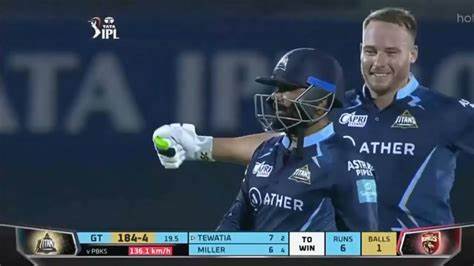Sports
Stakeholders seem to have little respect for Test cricket (Column: Just Sport)

By Veturi Srivatsa
Why are South Africans considered the top-rated travellers in international cricket? Because, they have an impeccable winning record overseas in all conditions. A team that can do so well, away from home, cannot be beaten easily. The only series they lost in unfamiliar conditions in the last decade or so was to India when Hashim Amla-captained team was mauled 0-3 in a four-Test series in 2015.
It is not that South Africa were not beaten in their backyard, they lost to Australia twice and once to England during the time they were doing well overseas. The Indians also lost to England, but forced South Africa to share series 1-1 twice at home.
This was also the period when India won their first Test in South Africa in 2006-07 and drew their first series 1-1 the next time they were there in 2010-11. Though they were also beaten 0-1 on their last tour, their showing in the three series gave them the confidence of doing well this time round.
Importantly, most members of the present Indian squad knew well the conditions they were going to encounter, having been part of the team the last time. Yet they lost the series straight 0-2 to belie hopes of winning the series yet another time.
Before leaving the Indian shores on the last three tours, it was said that they had their best chance of winning a series in South Africa.
Now that the series was lost the reasons for the disastrous outing is reduced to nitpicking, comparing the comprehensive nature of India’s 3-0 victory back home and the phases of intensity they showed before going down in this series.
Only the Australian and English boards are serious about a full Test series. The Ashes is untouched and they like others, want to play India for the humongous television revenue the matches generate.
The rest of the bilateral series are mostly reduced to two or three matches. But they have no qualms about playing half a dozen One-Day Internationals (ODI) and half that number of Twenty20 Internationals like the Indians are going to play on this tour.
When international cricket was confined to Test and first class matches, India’s longest tour was to England in 1959 and that last almost six months, starting in June and ending in September-end. They lost the series 5-0 and that was also England’s first five-Test series sweep.
It is difficult to even visualise a team other than Australia playing so many fist-class matches on a tour.
India played eight first-class games before the first Test at Nottingham, another two before the second Test at Lord’s, two more before the third at Leeds, four tour matches before the fourth at Manchester and six before the last Test at the Oval.
They played five more matches before the tour ended! In all they played 35 matches, including 33 first-class. It was also a 17-member squad, Abbas Ali Baig joining from Oxford when Vijay Manjrekar had to undergo a knee surgery.
Twelve years later, when India won their first series win in England, their tour schedule remained more or less the same, the team playing eight matches before the first Test, two each between the first, second and third Tests.
Surprise of surprises, the players had to reluctantly play four more matches after winning the series!
The worry now is soon the tour itinerary may include the newest contraption, Ten10, even though everyone sneers at it and swears by Test cricket.
Most players would love to play all formats and some are prepared to move away from Tests to prolong their life in shorter formats, the golden geese of international cricket.
How many can actually survive playing all formats. Only Virat Kohli, AB de Villiers, David Warner, Kane Wiliamson and Joe Root are technically well equipped to make adjustments skilfully, though a greater number of bowlers, particularly the spinners, seem more at home in all three formats.
In such a scenario, it is too much to expect the administrators to think seriously about Test cricket and providing enough space and time for the players to prepare for a serious Test of skills.
Skipper Virat Kohli did protest over cramming the tours without any rationale and packing all formats in one huge package without any consideration for the players who play in all three formats. The stakeholders seem to have little respect for Test cricket.
(Veturi Srivatsa is a senior journalist and the views expressed are personal. He can be reached at [email protected])
–IANS
vs/sam/vm
Home
Sunil Gavaskar gives his opinion of GT allrounder Rahul Tewatia

The left-handed batsman from Haryana is garnering praise from all quarters for the way he’s finishing games regularly in the most exciting IPL season.
Gavaskar reckons Tewatia’s whirlwind knock in Sharjah (in IPL 2020) where he smashed West Indies pacer Sheldon Cottrell for five sixes in an over, gave him the confidence that he belongs to the big stage.
Speaking on Cricket Live on Star Sports, Gavaskar said, “That assault on Sheldon Cottrell in Sharjah gave him the belief to do the impossible and the confidence that he belongs here. We saw the impossible (he did with the bat) the other day as well. There’s no twitching or touching the pads (which shows a batter’s nervousness) when he bats in the death overs. He just waits for the ball to be delivered and plays his shots. He’s got all the shots in the book, but most importantly his temperament to stay cool in a crisis is brilliant.”
Gavaskar has also nicknamed the 28-year-old cricketer the ‘ice-man’ and lauded Tewatia’s ability to remain unruffled during the tense moments.











